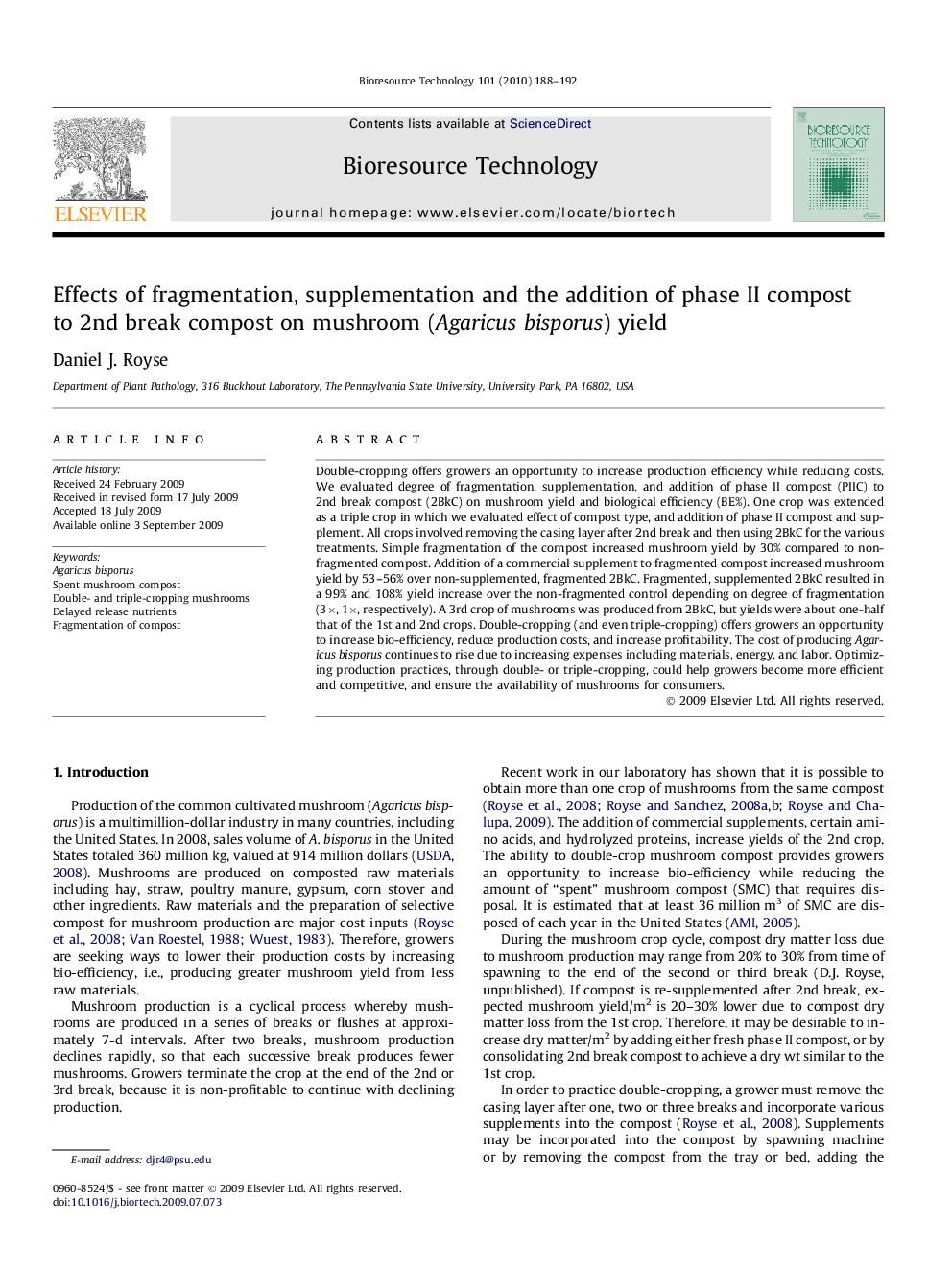| Article ID | Journal | Published Year | Pages | File Type |
|---|---|---|---|---|
| 683094 | Bioresource Technology | 2010 | 5 Pages |
Double-cropping offers growers an opportunity to increase production efficiency while reducing costs. We evaluated degree of fragmentation, supplementation, and addition of phase II compost (PIIC) to 2nd break compost (2BkC) on mushroom yield and biological efficiency (BE%). One crop was extended as a triple crop in which we evaluated effect of compost type, and addition of phase II compost and supplement. All crops involved removing the casing layer after 2nd break and then using 2BkC for the various treatments. Simple fragmentation of the compost increased mushroom yield by 30% compared to non-fragmented compost. Addition of a commercial supplement to fragmented compost increased mushroom yield by 53–56% over non-supplemented, fragmented 2BkC. Fragmented, supplemented 2BkC resulted in a 99% and 108% yield increase over the non-fragmented control depending on degree of fragmentation (3×, 1×, respectively). A 3rd crop of mushrooms was produced from 2BkC, but yields were about one-half that of the 1st and 2nd crops. Double-cropping (and even triple-cropping) offers growers an opportunity to increase bio-efficiency, reduce production costs, and increase profitability. The cost of producing Agaricus bisporus continues to rise due to increasing expenses including materials, energy, and labor. Optimizing production practices, through double- or triple-cropping, could help growers become more efficient and competitive, and ensure the availability of mushrooms for consumers.
